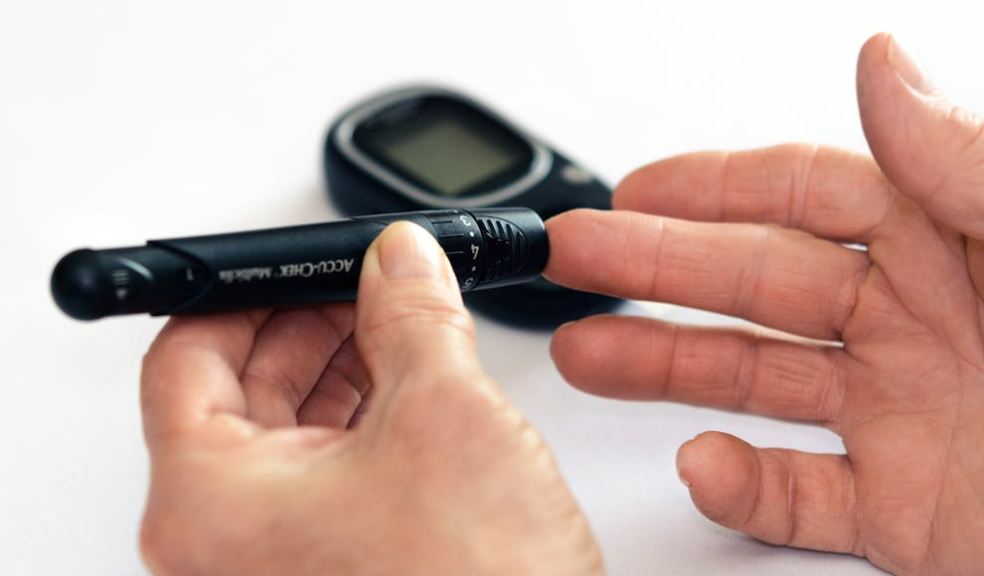
A generational opportunity: Charity calls for action to tackle alarming rise in cases of type 2 diabetes among under 40s
Cases of younger people being diagnosed with type 2 diabetes in the UK are rising to ‘alarming levels’, a charity has warned.
A new report, published this week by Diabetes UK, says the Government faces ‘a generational opportunity’ to tackle the crisis with a range of measures, including addressing the factors causing obesity and health inequalities.
The report reveals there was an almost 40% increase in the number of people under the age of 40 living with a diagnosis of type 2 diabetes between 2016-17 and 2022-23[1]. The charity estimates there are now almost 168,000 people under 40 with the condition in the UK2, a rise of more than 47,000 since 2016-17, and says the figures should come as a ‘major wake-up call’ to policymakers.
Across the Devon Integrated Care Board (ICB) area, the number of cases of people under 40 living with type 2 diabetes has risen by 44.7% to 2,120 over the same period.
Phaedra Perry, Head of Diabetes UK – south west and south central said: “Diagnoses of type 2 diabetes in people under 40 are rising to alarming levels in Devon and across the UK. It’s a damning indictment of the barriers that many of us face to living a healthy life, where good food is affordable, and exercise isn't a luxury.
“There is a generational opportunity to stop this crisis in its tracks and we are calling on all political parties to seize it. We need bold action to reverse the rising trend in type 2 diabetes, overturn our broken food environment and give every child and young person the best possible chance to grow up in good health.
“The decisions taken now will not only determine the health of young people today, but also the next generation.”
It's also now clear that many thousands more young adults are likely to be living with undiagnosed type 2 diabetes, after a recent report by the Office for National Statistics estimated that 50% of those aged 16-44 with type 2 diabetes hadn’t yet received a diagnosis3.
Type 2 diabetes has historically been associated with older people. But cases among under 40s have been on the rise in recent years and are now increasing at a faster rate than among over 40s. The condition is known to have more severe and acute consequences in people under 40 and, without the right treatment and support, it can lead to serious diabetes complications that include kidney failure and heart disease. Devastatingly, those who develop type 2 diabetes at a younger age are also more likely to die early.
The findings come as concerns mount about rising ill-health among working age people.
Diabetes UK says the latest figures confirm an incredibly troubling growing trend, how serious health conditions linked to obesity, caused by the environment we live in, are becoming more and more prevalent in a younger demographic.
The charity’s report, published this week as part of Type 2 Diabetes Prevention Week (May 20-26) and launched at a reception at the Houses of Parliament this morning, calls for all political parties to commit to:
· Put the building blocks of health in place for every child and young person, including access to green space, affordable, healthy food, and quality housing.
· Improve our food environment, which is leading to obesity, by introducing the delayed restrictions on junk food advertising and expanding on the success of the Soft Drinks Industry Levy (sugar tax).
· Provide sustainable long-term investment in targeted support programmes for those most at risk of diabetes complications, to improve health outcomes and reduce inequalities.
Paul Sweet, 55, was diagnosed with type 2 diabetes at 27. Diabetes complications started to affect him from 2019 when he had a blocked artery in his heart – and he has since spent time in hospital due to complications with his feet. Paul said:
“Type 2 diabetes really has a huge impact on you and the whole family. I'm quite fortunate to have my wife, Tina, but this has been really hard for her because she's not the best with hospitals. She's had to try and hold the house together and help with the children.
“But then you lose your money as well. I'm a self-employed bookkeeper. I’ve been employed before in various accountancy firms but with my illness, with my surgery, I've had to give up work, which is really tough.”
No one thing causes type 2 diabetes. It is caused by a combination of factors. These include genetics, age, bodyweight and where your body stores fat. The reasons someone develops it will be individual to them. For many people, the odds of getting type 2 diabetes are stacked against them. People from the most deprived areas and people from Black and South Asian backgrounds are more likely to develop the condition. This inequity is exaggerated among younger adults. More than a third of adults under 40 with type 2 diabetes are from the most deprived parts of England4.
Diabetes prevalence figures released today by Diabetes UK show there are nearly 4.4 million people5 living with a diabetes diagnosis in the UK as of 2022-23. Approximately 90 per cent of the cases are type 2, about 8% are type 1, with the other forms of the condition make up the remaining 2%. Additionally, there are an estimated 1.2 million people living with type 2 diabetes who haven’t been diagnosed yet6, meaning more than 5.6 million people are now living with diabetes in the UK. It also means the number of people living with a diagnosis of type 2 diabetes in the UK has tipped over four million for the first time.
In the Devon Integrated Care Board (ICB) area, the number of cases of people living with a diagnosis of diabetes has risen by 0.2% to 75,895 since 2022-23
As part of Type 2 Diabetes Prevention Week, Diabetes UK is urging people to check their risk of the condition by using the charity’s free, online Know Your Risk tool. It takes just a few minutes to complete and advises you on your risk and suggests next steps to help reduce your risk. If you are at high risk, you could be referred to the NHS Diabetes Prevention Programme in England. This has shown to cut the risk of developing type 2 diabetes by more than a third.For more information about the signs and symptoms of all types of diabetes, and the Know Your Risk tool, visit diabetes.org.uk.
Diabetes support groups are available online and in North Devon, Exeter and Plymouth. Contact Diabetes UK to find out more: www.diabetes.org.uk/contact-regional











